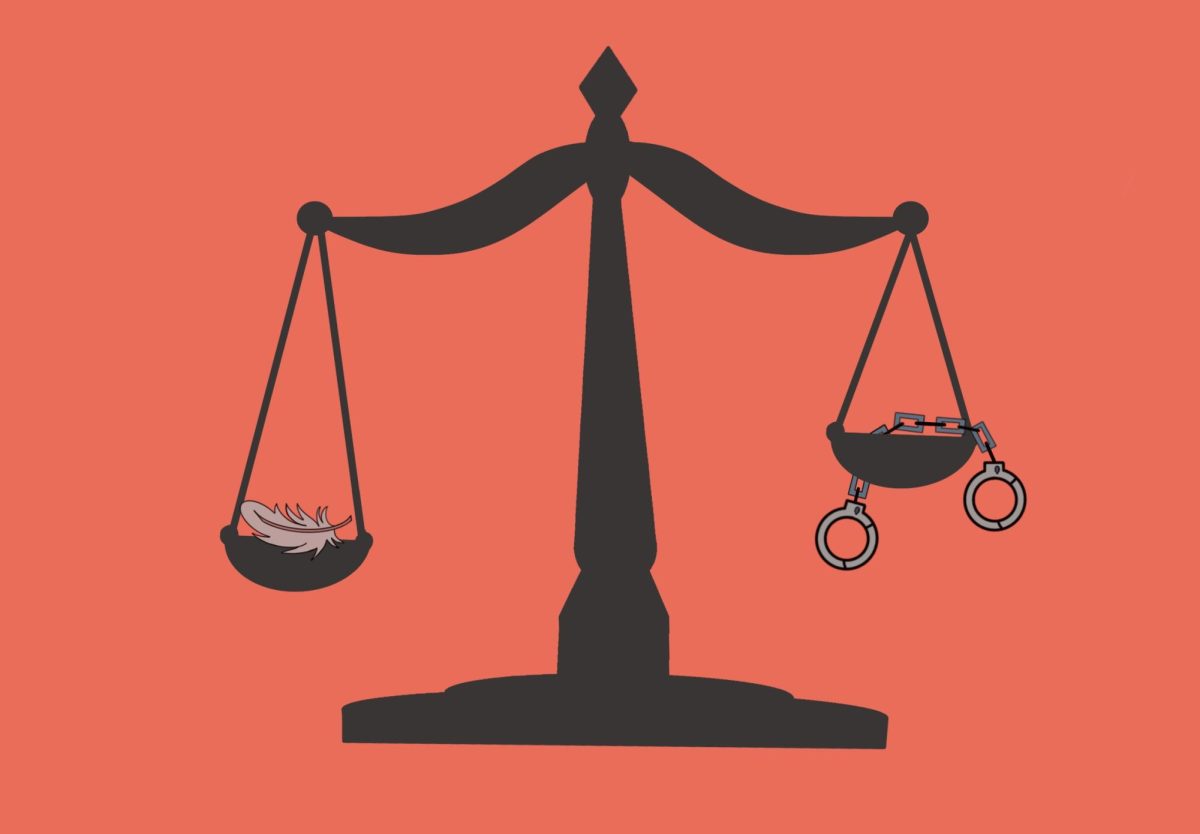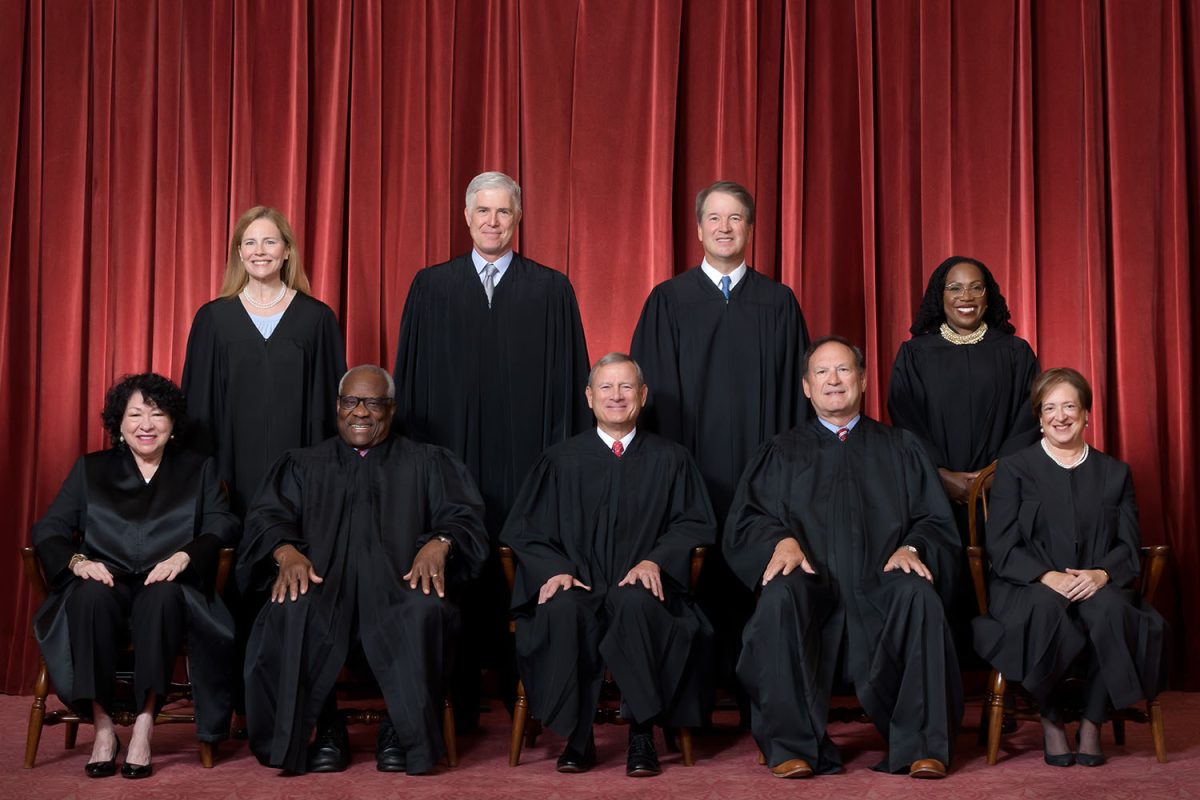Head to Head: Should Affirmative Action continue to be in place?
Affirmative Action is on the hot seat currently as policies at both Harvard University and the University of North Carolina at Chapel Hill (UNC) are being contested in the Supreme Court.
Students for Fair Admissions (SFFA), the group suing Harvard and UNC, is a non-profit organization that believes the consideration of race in college admissions is unfair, unnecessary and unconstitutional. In a move for the better, the Court seems poised to side with SFFA and force colleges to change from seeking out differences in race to searching for differences in perspective.
Elite colleges and universities should theoretically only let in the best of the best, but SFFA alleges that both universities use a soft-quota system, which keeps the number of minority students admitted relatively constant over the years.
SFFA’s filing against Harvard also includes a report by Peter Arcidiacono, a Duke University economist, that shows the process Harvard uses to score applicants, which rates the applicants based on personality traits. Arcidiacono study shows that Asian Americans are significantly more likely than Black or Hispanic applicants to receive a lower “personality score”.
The Equal Protection Clause of the Constitution has imposed rules on government-funded schools to not discriminate, but there aren’t clear parameters on what’s legal and what’s not. Title VI of the Civil Rights Act of 1964 imposes the same restrictions on private universities like Harvard.
Nevertheless, earlier Supreme Court precedence allows colleges to consider race in admissions decisions in order to promote diversity because, according to the court, “the social benefits of diversity justify allowing universities to take a limited account of race when deciding who to admit as a student.”
Even without race-conscious admissions, Harvard and UNC’s admissions are grossly
skewed toward legacy students. Among selective universities, both public and private, almost three-quarters use legacy preferences. A study of multiple elite U.S. schools shows that being the child of an alumnus adds the equivalent of 160 SAT points to one’s application and increases an applicant’s chance of admission by almost 20 percent.
At UNC, the legacy admission rate is 44 percent compared to their all-encompassing 25 percent admit rate. At Harvard, the difference is startlingly worse. Harvard only admitted 3.43 percent of the applicants between 2014-2016 and of those admitted 33 percent were legacy. Although 62 percent of the Harvard Class of 2025 is from a minority group, more than 77 percent of the Harvard class comes from a family in the top fifth of wealth.
While schools like Harvard and UNC make an effort to reach for a more diverse student body, they inadvertently do the opposite: turn an elite college into a college only accessible to the elite. Wealthier kids are more likely to have the resources to succeed, so when schools try to ensure racial diversity, they are restricting economic diversity, and are more often than not choosing to admit the Black student that went to private school and paid for a 100 dollar-an-hour college tutor over the Black student who went to public school and couldn’t afford a tutor, prep books or any kind of support.
Ultimately, race-conscious admission no longer instills diversity into campuses; it restricts it. It’s important to see differing viewpoints and backgrounds in higher learning, and that isn’t only defined by race, but also things like economic background, sexual orientation, first-generation status and much more.
When admissions officers put such an emphasis on one’s race, they lose sight of everything else that influences someone’s perspective on life. If the Supreme Court puts an end to race-conscious admissions, it’s opening up the possibility of exploring the other meanings of the word “diverse.”
By June, the Supreme Court will hand down a ruling on affirmative action programs that could destroy one of the most important parts of the college admissions system. Affirmative action, which emerged from the Civil Rights Movement has been critical in making the college admissions process more equitable while promoting diversity among student bodies nationwide.
By using affirmative action, colleges are able to consider race as one of many factors that impact admissions outcomes. Doing so allows colleges to distribute more spots to historically underrepresented minority groups. This increases the overall diversity of the class size, leading to better education for all students at the college. Higher diversity means that students are able to interact more with students with backgrounds that are different from their own, bringing more perspectives into the classroom and teaching necessary skills.
The Century Foundation writes, “A longitudinal study of college students found that the more often first-year students were exposed to diverse educational settings, the more their leadership skills improved.” Furthermore, colleges are meant to teach students beyond the classroom, preparing them for the rest of their lives where they will have to work with people from many different backgrounds. Many colleges are already being accused of creating isolated echo chambers disconnected from the rest of the world. If affirmative action is struck down, this problem will only continue to get worse.
In addition to promoting diversity, affirmative action is also key to making the college admissions process more equitable. Even today, admissions are biased against students of color, especially Black and Hispanic students. A New York Times analysis finds that Black and Hispanic students are more underrepresented than they were 35 years ago. The Times writes, “Affirmative action increases the numbers of black and Hispanic students at many colleges and universities, but experts say that persistent underrepresentation often stems from equity issues that begin earlier.” Affirmative action makes it more likely that members of underrepresented minorities will be able to access higher education, which can have positive outcomes across communities.
Additionally, affirmative action programs also improve relationships between members of different ethnic groups. The Century Foundation said, “Studies show that emotional bonds formed through close cross-group relationships lead people to treat members of their friends’ groups as well as they treat members of their own groups. These types of relationships are most commonly formed within schools that have greater levels of racial and ethnic diversity.” By exposing students to perspectives they might not have encountered in their own ethnic and social groups, affirmative action helps build relationships across entrenched divisions. These relationships are necessary for equity that extends beyond campus walls.
Opponents of affirmative action claim the program targets White and Asian students, unfairly disadvantaging them in admissions. However, this perspective fails to account for the advantages that members of these groups already enjoy in the college admissions process, including access to more resources and opportunities. Affirmative action is designed to balance the scales. Critics of affirmative action also fail to recognize that removing programs harms White and Asian students in other ways by denying them the benefits that a diverse education provides. Rhetoric that focuses on Asian students, specifically, has been used to drive a wedge between Asian people and other ethnic groups, ignoring the fact that many Asian people support affirmative action (70%, according to a 2020 survey conducted by the Asian American Voter Survey).
Affirmative action in college admissions benefits all students and the nation, as a whole, by improving diversity and equity in a system that is still neither diverse nor equitable. If the Supreme Court strikes down affirmative action, it will erase decades of progress on both of these fronts.

















